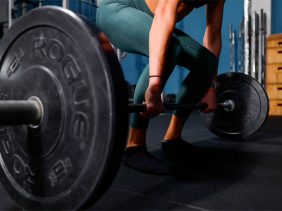The 5 Simplest Ways to Boost Concentration
 © foodspring
© foodspring
You sit down at your desk with a fresh cup of coffee and take a deep breath, with a view to focusing on your work. But actually, you also want to check what the weather’s like tomorrow, and what’s on the menu at the Italian restaurant where you’ll be eating tonight. And suddenly your concentration’s gone again.
If that sounds like you, don’t worry. You’re definitely not alone. The ever-present stress is unprecedented at the moment, and feeling rushed all the time is guaranteed to kill your ability to concentrate. Add in the fact that many of us are moving away from working from home and back to open-plan offices and you have a big adjustment that creates turmoil. Noise-canceling headphones can be helpful, but for some, just listening to a little classical music is enough to block out distractions.
If, despite everything, you increasingly find yourself in situations where you keep losing focus, our five scientifically proven tips may help you complete your tasks more effectively and you’ll be able to reward yourself afterwards with a clear conscience. For example, with dinner in an Italian restaurant!
- Restful Sleep
Sleep is probably the easiest way to finally be able to focus on the email you need to write, the book you want to read, or the presentation you need to give. A study published in npj Science of Learning explains what we actually already know: without a restful night’s sleep, your day is sure to be chaotic. To better understand this, researchers at the Massachusetts Institute of Technology and Harvard Business School studied the sleep quality and duration of 100 students, and analyzed the findings based on students’ exam results. Better sleep was associated with better grades, highlighting the concentration-enhancing effects of a restful night’s sleep. If the cause of your concentration problems is stress, quality sleep can also be the solution.
How many hours of sleep you need depends on the individual, but falling asleep itself is often not that easy for most of us.
To make it easier, be sure to ban your cell phone from the bedroom and avoid blue light from screens. Reading can relax you, but if you have a penchant for gory thrillers, they may also get you all worked up before going to sleep. To find out what works especially well for you personally before sleep, you can keep a sleep diary. Every morning, note down how restful your night felt and what you ate, drank, read, or did the night before. You can then identify which rituals are good for your sleep and which ones are more likely to lead to restless nights.
- Move More
Getting regular exercise may not be quite as easy as sleeping, but it’s just as effective for your concentration. A study published in the scientific journal Sports Health shows that athletes are better able to block out noise and background sounds and concentrate on the essentials. Researchers compared this effect to a radio. When it’s noisy, you can either turn up the volume to hear the voices better, or you can reduce the noise. And that’s exactly what the brains of athletically active people seem to do better. If you exercise a lot anyway, it can help to add more variety to your workouts. Replace a cardio session with a yoga session or a bike ride in the fresh air. Experiment to see which workouts and sports work best for you.
- Drink Enough
We’re sticking to the basics, and for good reason. Every cell in your body depends on water to work properly. This includes your brain, because without an adequate supply of water, less oxygen and fewer nutrients are circulated – and your ability to concentrate decreases. The University of Westminster and the University of East London conducted a study that demonstrated that students could boost their attention by a full 25% simply by drinking an additional 300 ml water. Since your brain can’t store water, it’s important that you drink enough throughout the day. This is much easier if you place a jug on your desk before you start work, flavored with some lemon or mint. For more tips on drinking more water in your everyday life, click here.
- Don’t Multitask
You’re listening with one ear to what your work colleague got up to over the weekend while you’re checking your emails and typing a quick note into your cell phone. What may seem like a time-saver is usually anything but effective. Research suggests that multitasking doesn’t work. You often end up missing important information in your emails, and you don’t remember your colleague’s restaurant tips either. So it’s better to do one thing at a time, even if you feel it slows you down at first. A classic to-do list, for example, can help you sort out your thoughts, so you don’t have to worry about forgetting anything and you can do one task after the other. Besides, there’s probably no better feeling than the satisfaction you get when you cross an item off your list.
- New Challenges
Routines are all well and good, but the best thing for your brain and its performance is to regularly face new challenges and situations. This can be a new sport, a new running route, or even a new job. Concentration exercises, on the other hand, don’t seem to be as helpful as often assumed. Martin Meyer of the University of Zurich’s Psychological Institute for Learning and Plasticity in Healthy Aging explains in Spiegel Job & Career that concentration exercises such as Sudoku can only improve performance in certain areas. “If you practice doing Sudokus, you’ll be able to solve Sudokus better as a result – that’s all.”
But since most of us spend too much time on Instagram, TikTok and other social media anyway, a good old Sudoku is probably not such a bad idea at all!
More articles about this topic from foodspring:
Sources for this article
We at foodspring use only high-quality sources, including peer-reviewed studies, to support the facts within our articles. Read our editorial policy to learn more about how we fact-check and keep our content accurate, reliable, and trustworthy.

































